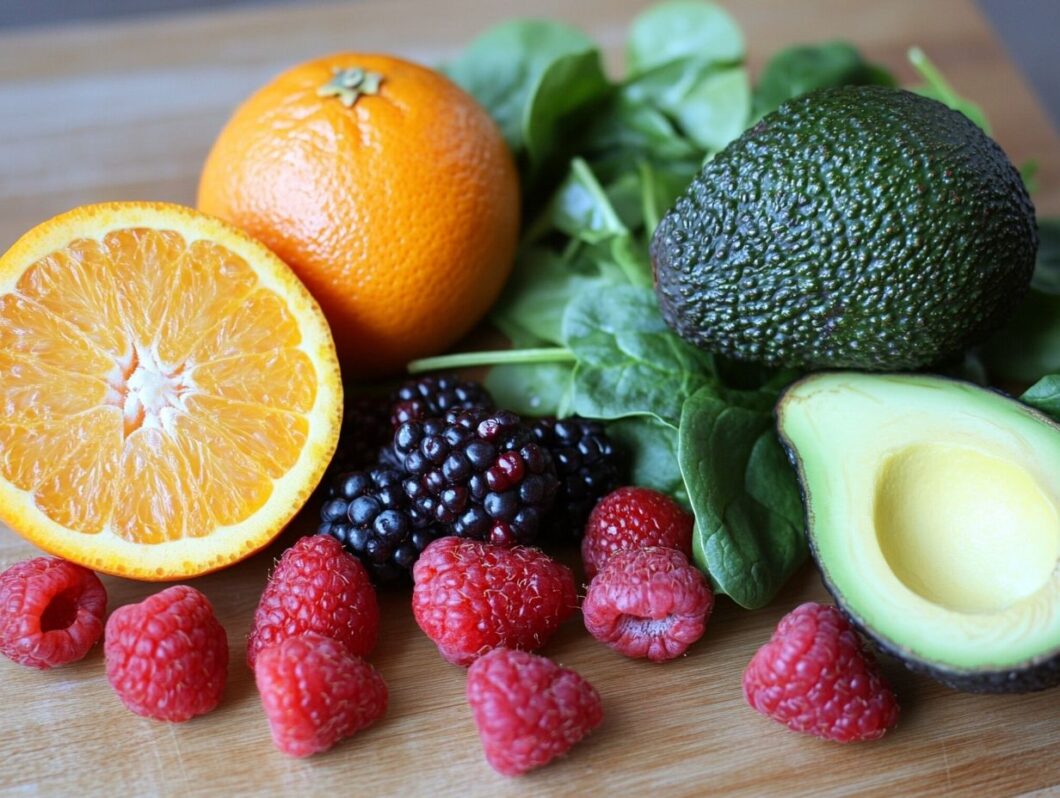The connection between nutrition and skin health is more significant than I initially realized. My diet directly influences my skin’s appearance and vitality.
In this exploration of how diet impacts skin health, I aim to highlight essential vitamins and minerals that nourish and repair the skin. I will discuss foods that promote clear, glowing skin and identify common skin issues linked to poor nutrition.
Additionally, I will share tips for adopting a skin-boosting diet and delve into the role of gut health in achieving radiant skin.
Key Takeaways:
The Role of Nutrition in Skin Health
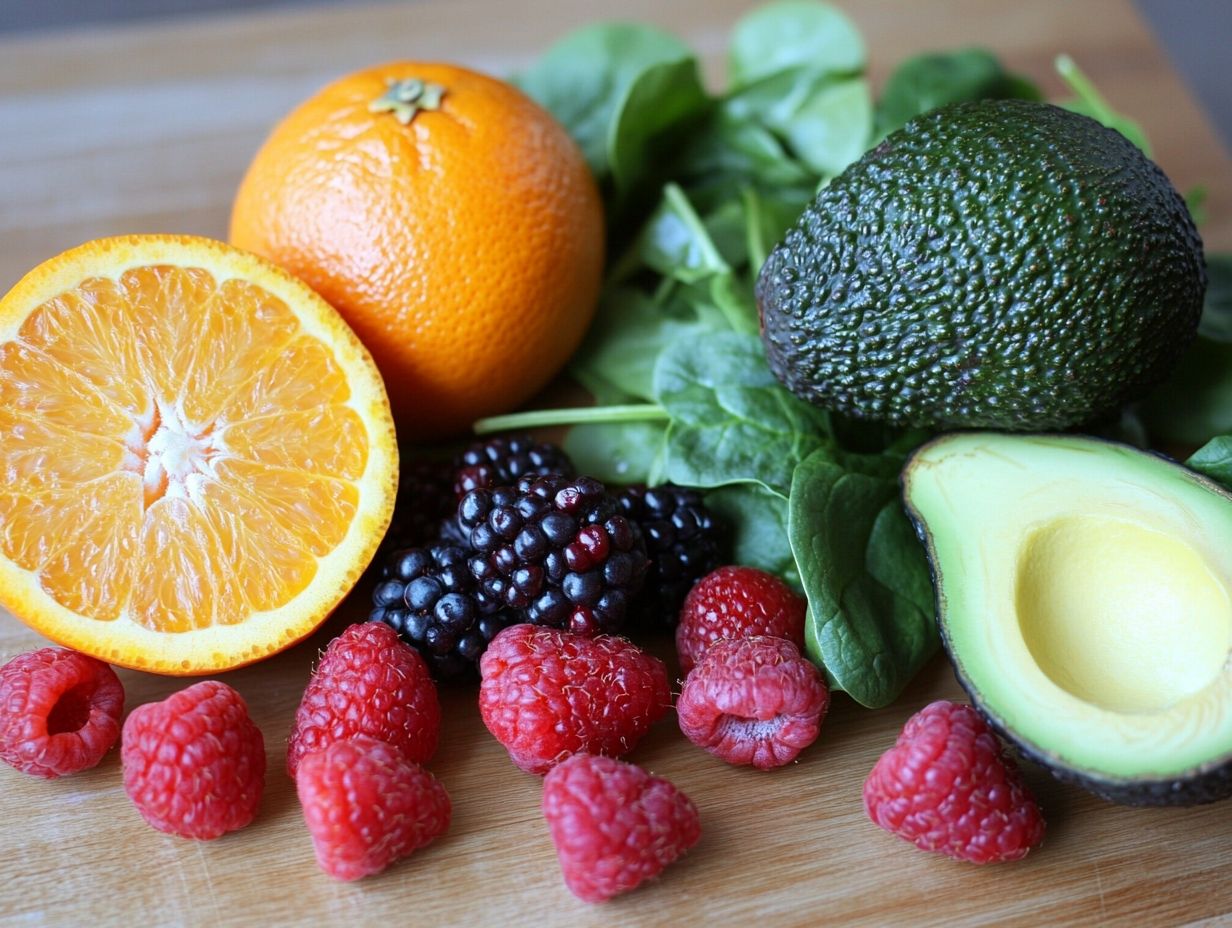
I recognize that nutrition plays a critical role in promoting skin health, as the food I consume can significantly influence both the appearance and functionality of my skin.
Maintaining a well-balanced diet rich in vitamins, minerals, and antioxidants allows me to combat skin aging, enhance elasticity, and support the skin’s repair processes.
On the other hand, poor dietary choices can lead to vitamin deficiencies and other imbalances that contribute to age-related changes in my skin.
By understanding the importance of diet management, I can make informed choices that foster healthy skin and mitigate the effects of environmental stressors, such as ultraviolet radiation and oxidative stress.
How Diet Affects Skin
The diet I choose has a significant impact on the condition of my skin, affecting everything from hydration levels to its vulnerability to oxidative stress and photo-aging.
A well-balanced diet that is rich in vitamins, minerals, and antioxidants is crucial for maintaining youthful and vibrant skin.
For example, I make it a point to include foods such as:
- berries
- spinach
- nuts
in my diet, as they are packed with powerful antioxidants that help combat free radicals—those pesky molecules that can damage skin cells and contribute to premature aging.
By incorporating these nutrient-dense options into my daily meals, I can support skin repair and enhance elasticity. Additionally, I ensure that I consume adequate amounts of vitamin C, found in citrus fruits and bell peppers, as it not only aids in collagen production but also helps diminish the appearance of fine lines and wrinkles.
Furthermore, healthy fats from avocados and fatty fish are essential for improving my skin’s moisture retention, giving it a plump and radiant appearance.
Essential Nutrients for Healthy Skin
I understand that a balanced intake of essential nutrients is crucial for maintaining healthy skin, as these nutrients support various physiological functions that are vital for skin integrity and appearance.
Vitamins and Minerals for Skin Health
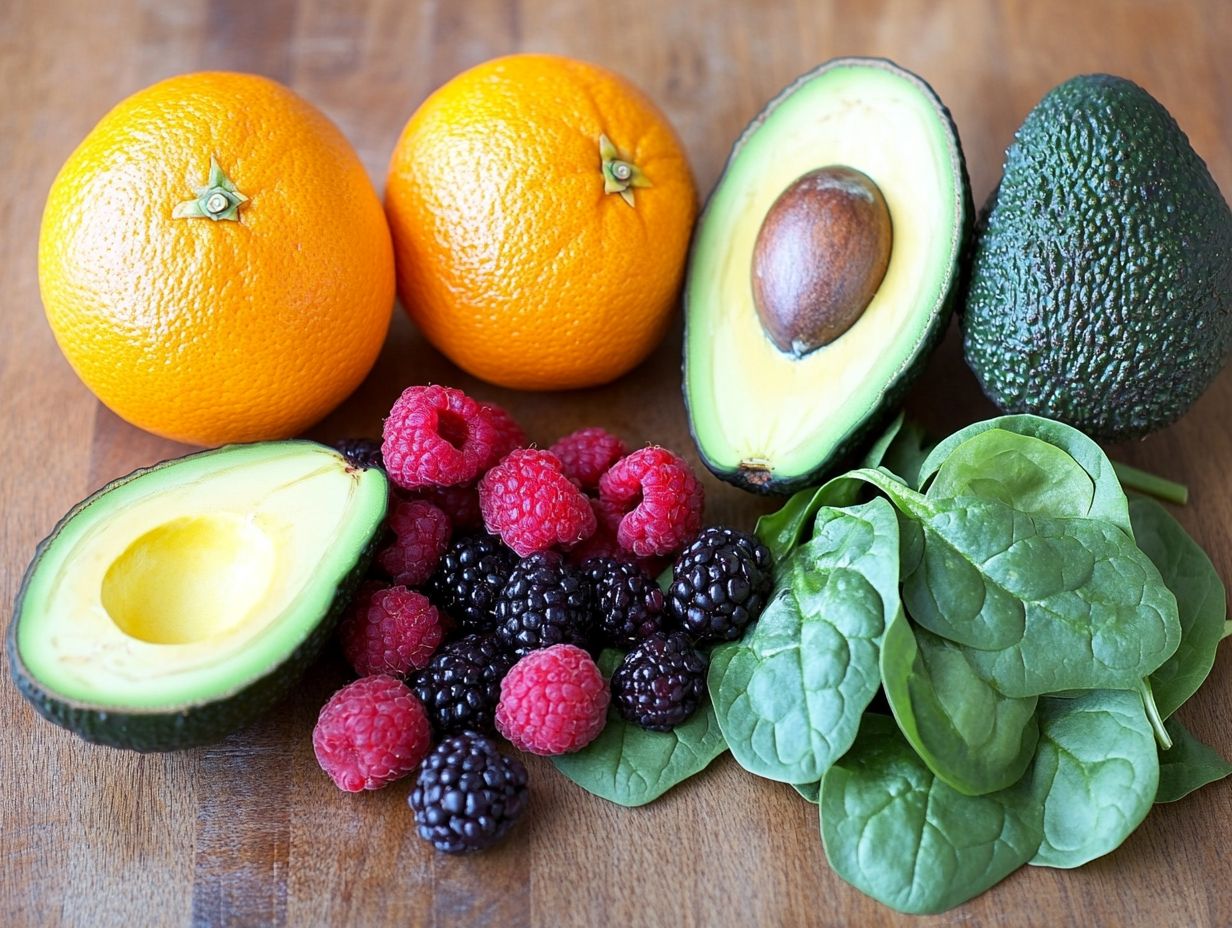
I recognize that vitamins and minerals are essential for maintaining skin health, particularly vitamin C and vitamin E, which are renowned for their potent antioxidant properties that assist in skin repair and collagen synthesis.
The benefits of vitamin A are also significant, as it enhances skin elasticity and is crucial for preserving a youthful appearance. Additionally, hydration can be markedly improved by B vitamins, especially B3, which helps retain moisture and fortify the skin barrier. Magnesium plays a critical role in protecting the skin from UV radiation by supporting cellular repair processes.
Conversely, deficiencies in these essential nutrients can result in a range of skin issues, including dryness, premature aging, and increased vulnerability to sun damage. This underscores the importance of maintaining a well-rounded diet that is rich in these vital components to achieve optimal skin health.
Foods that Promote Skin Health
I have found that incorporating specific foods into my diet can significantly promote skin health. These foods provide essential nutrients and antioxidants that effectively combat the effects of aging and environmental stressors.
Top Foods for Clear and Glowing Skin
For anyone seeking clear and glowing skin, I recognize that certain foods provide exceptional benefits thanks to their rich content of vitamins, minerals, and antioxidants.
Incorporating these foods into my diet can significantly enhance my skin health, helping to combat the effects of aging while maintaining a radiant appearance. For example, I find that berries are packed with antioxidants, which effectively fight free radicals that can cause oxidative stress and accelerate the aging process.
Fatty fish, such as salmon, are also essential in my diet, as they provide omega-3 fatty acids that boost moisture levels and improve overall hydration. Additionally, I emphasize the importance of leafy greens like spinach and kale, which are excellent sources of vitamins A and C, supporting collagen production and maintaining skin elasticity.
Moreover, nuts and seeds, rich in vitamin E, play a crucial role in protecting my skin from sun damage and keeping it well-hydrated. Together, these foods create a powerful synergy that promotes a healthier and more youthful complexion.
Effects of Poor Nutrition on Skin
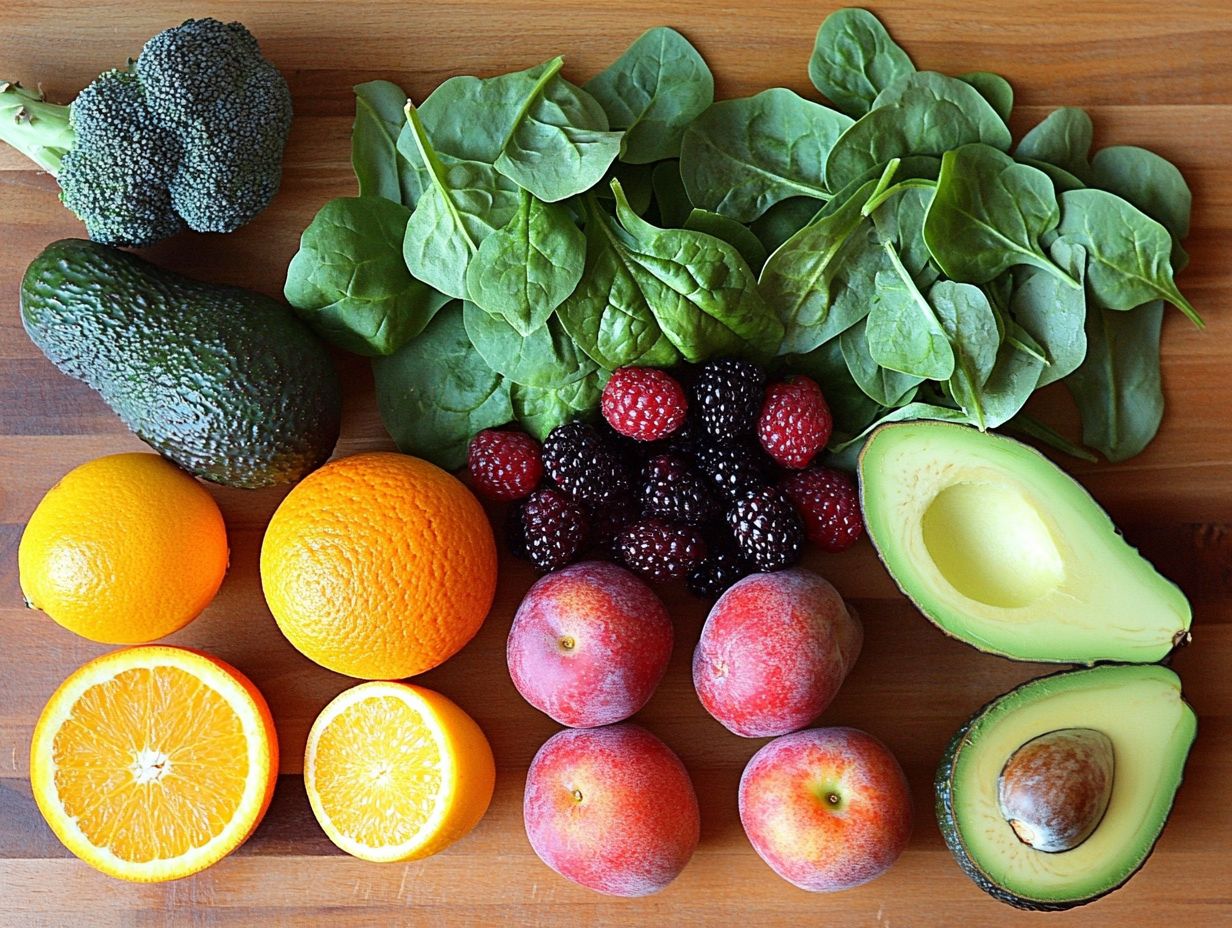
I understand that poor nutrition can result in a variety of skin issues, presenting as different age-related changes and conditions that negatively impact skin health and appearance.
Common Skin Issues Caused by Poor Nutrition
I recognize that common skin issues stemming from poor nutrition include dryness, acne, and premature wrinkles, all of which can be worsened by oxidative stress and vitamin deficiencies.
For example, not consuming enough essential fatty acids can result in dry and flaky skin, while a deficiency in vitamins A and E can lead to a dull complexion and increased visible signs of aging. Additionally, I have observed that acne outbreaks are often associated with high glycemic diets, which can cause spikes in insulin levels and trigger excess sebum production.
By adopting a varied diet that includes plenty of fruits, vegetables, whole grains, and healthy fats, I can significantly enhance my skin health. Nutrients like zinc, which is abundant in nuts, can help reduce inflammation and promote healing, while proper hydration is crucial for maintaining skin elasticity.
Consequently, making a conscious effort to improve dietary choices can serve as an effective strategy for addressing these common skin concerns.
Improving Skin Health through Nutrition
I firmly believe that enhancing skin health through nutrition is entirely achievable by embracing a well-rounded diet.
This approach emphasizes proper hydration, a diverse range of nutrients, and the inclusion of foodborne antioxidants.
Tips for a Skin-Boosting Diet
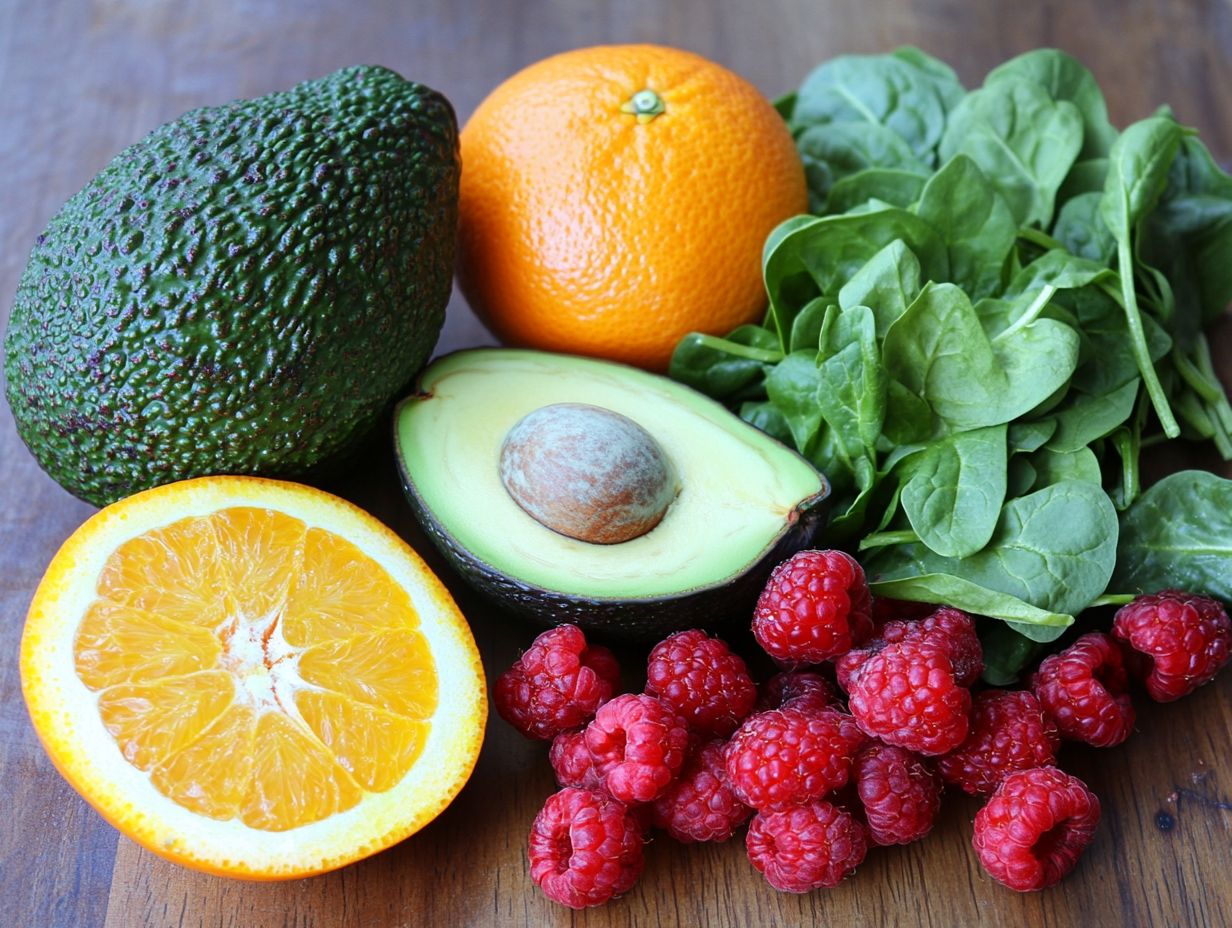
Adopting a skin-boosting diet involves a few straightforward strategies that I find effective, such as focusing on whole foods, maximizing antioxidant intake, and ensuring proper hydration.
By incorporating a variety of colorful fruits and vegetables into my daily meals, I can significantly enhance my antioxidant levels, which are essential for combating oxidative stress and promoting a radiant complexion.
I often plan my meals around a weekly menu that features berries, leafy greens, and nuts, all of which are abundant in skin-friendly nutrients. Additionally, I make a point to include omega-3 fatty acids from sources like fatty fish and flaxseeds, as these can further improve skin elasticity and moisture.
Staying adequately hydrated is equally important; I aim for at least eight glasses of water each day to ensure my skin remains plump and to minimize the appearance of fine lines.
Supplements for Skin Health
I believe that supplements can be a valuable addition to my diet, providing concentrated doses of essential nutrients that support skin health, particularly when my dietary intake may fall short.
Additional Support for Skin Health
Plus maintaining a healthy diet, I find that various supplements can offer valuable support for skin health by enhancing hydration and improving the skin’s natural repair processes.
For example, omega-3 fatty acids, commonly found in fish oil, are essential for maintaining the skin’s lipid barrier, which is vital for preventing moisture loss. Similarly, vitamin E serves as a potent antioxidant that protects skin cells from damage and aids in healing and soothing dry skin.
I’ve also noticed the growing popularity of collagen supplements, which may enhance skin elasticity and reduce the appearance of wrinkles, especially when paired with a balanced diet rich in vitamin C for optimal effectiveness.
Collectively, these supplements can significantly contribute to achieving a radiant complexion and promoting overall skin vitality.
The Link Between Gut Health and Skin
I have observed a growing recognition of the link between gut health and skin health.
Emerging research underscores the influence of the gut microbiome on inflammatory responses and overall skin conditions.
This connection is becoming increasingly significant in the broader context of health and wellness.
How Gut Health Affects Skin Health
I recognize that gut health significantly impacts skin health, as an imbalance in gut microbiota can lead to increased inflammation, which may exacerbate various skin issues.
When I prioritize a well-balanced diet rich in probiotics and prebiotics, I not only promote gut diversity but also enhance nutrient absorption. Probiotics, found in foods such as yogurt and fermented vegetables, help maintain a thriving population of beneficial bacteria that can reduce inflammation. Meanwhile, prebiotics, which are present in fiber-rich foods, serve as nourishment for these beneficial bacteria.
Together, they contribute to better digestion and improved nutrient uptake, both of which are vital for the appearance of the skin. A well-functioning gut, therefore, plays a crucial role in mitigating skin problems and can lead to a healthier and more vibrant complexion.


